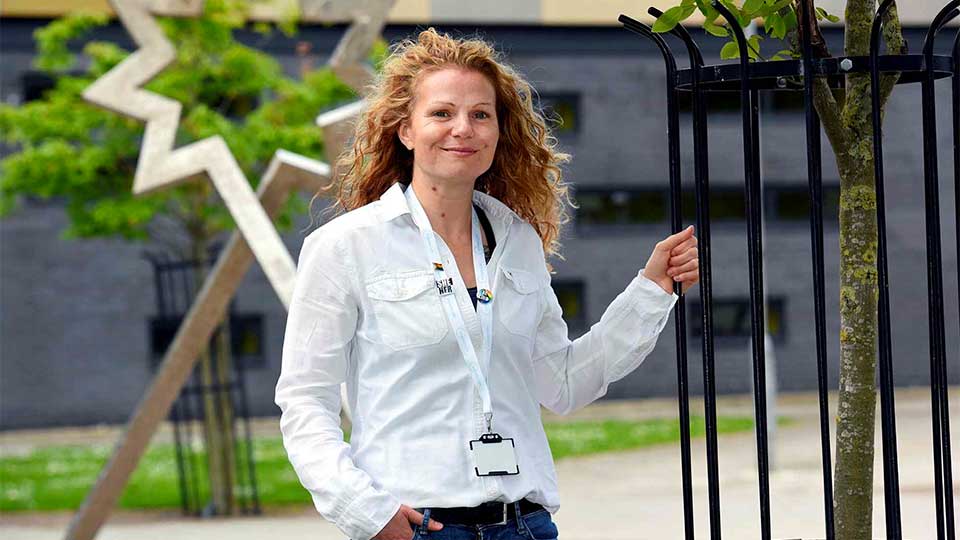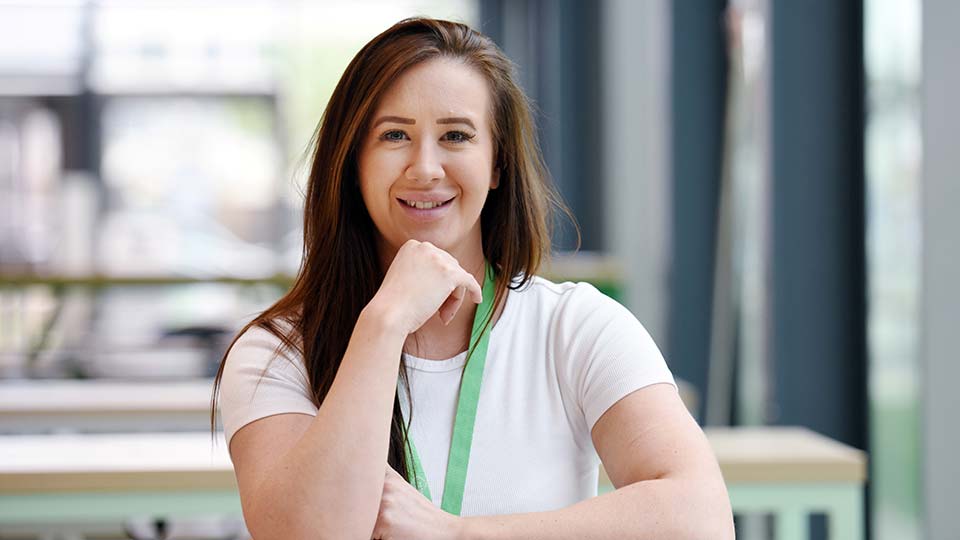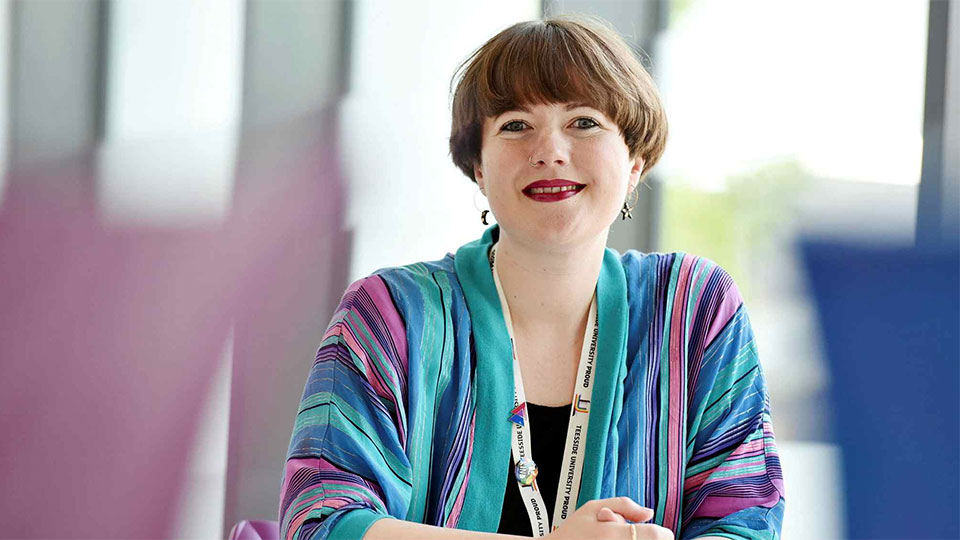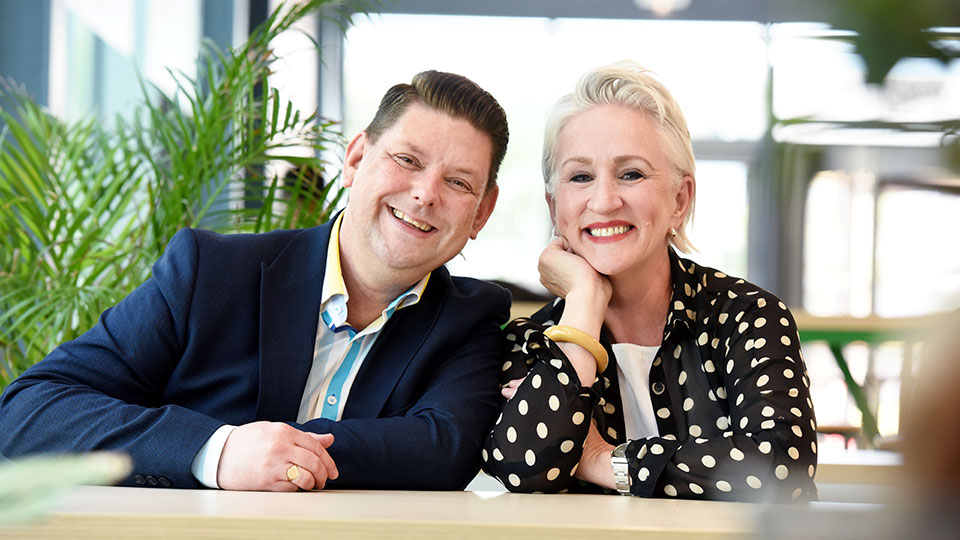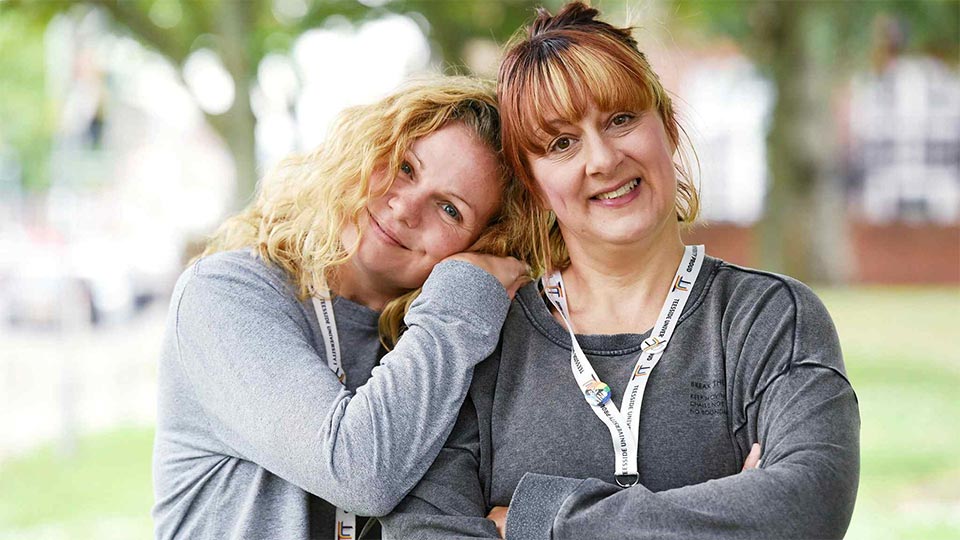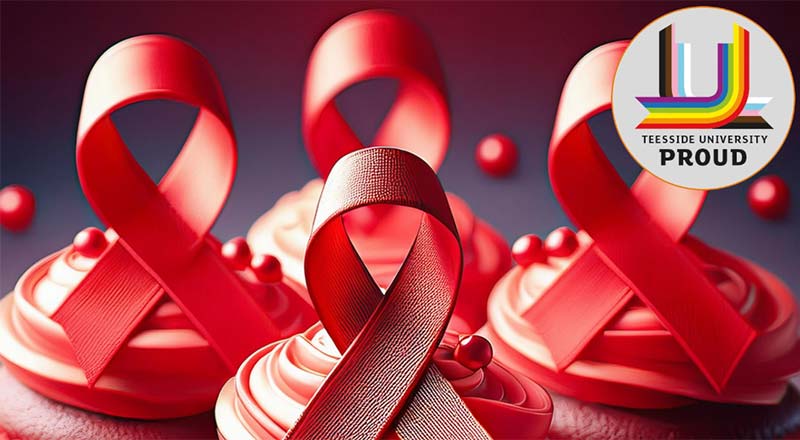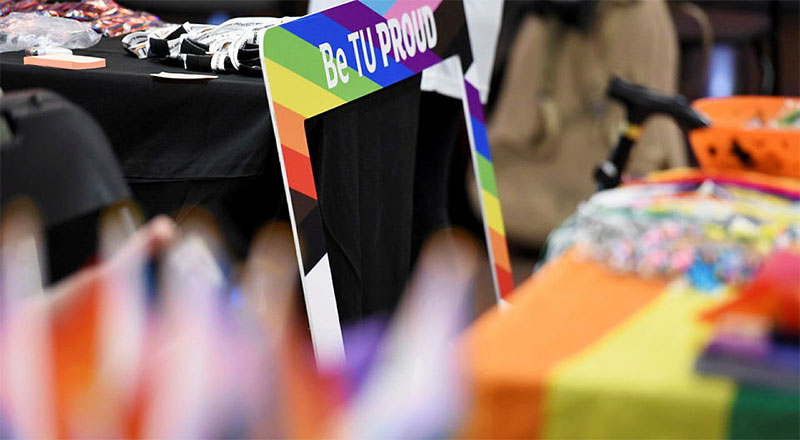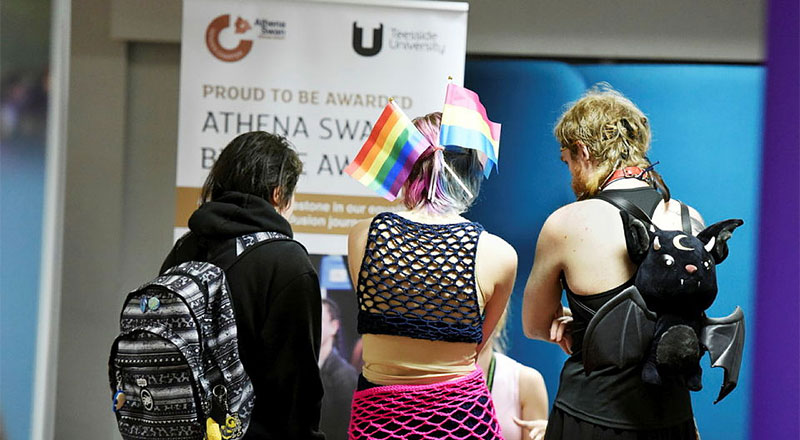I'm 45, which means I was 10 years old when section 28 began.
I'm trans, I transitioned to male starting in 2003. But when I was in high school I didn't fully know what my identity was, just that I probably wasn't straight.
The impact of a law that made it illegal to talk about queer people, in history class, in English, in media studies, in the awkward sex education lessons, which blanketed over all sexual orientation and gender identity that wasn't cisgender and straight: the impact of that is so huge it's hard to conceive.
I went to a small grant-maintained Norfolk high school, and all in all it wasn't a bad school. But in not talking about queer relationships and not talking about gender identity, the message that they are not good and not normal, is heard loud and clear.
None of the books on my high school or sixth form curriculum had queer characters.
We didn't talk about any queer people in history. We covered World War Two but not the persecution of queer people under the nazis, and not the destruction of probably the first gender identity institute by the nazis in Berlin that was run by a gay Jewish doctor.
What you learn in school isn't just the information they give you, you learn a lot from what is not talked about. You learn what is shameful. I learnt what was shameful and taught myself how to hide it and when to hide it. I learnt how to act to fit in. I learnt how to get away when can't hide who you are. You get a thorough schooling in how to manage that build up of shame and psychological pain, often before you've even put into words what you are experiencing.
I was a trans child, and I was a trans teenager, even though I didn't have the words for it. I was going to school and not knowing why it was so psychologically painful to just exist.
I started experiencing mental health problems when I was in high school. I was very anxious and avoided going to school when I could. I developed an eating disorder, over-eating and under-eating. It would be too simplistic to say my mental health was bad because I was trans and queer or because of section 28. But now, with hindsight, I can see the chain of events as:
I became aware of being trans and queer - I automatically felt ashamed because of the culture I grew up in told me it was shameful - sustained shame leads to psychological distress that came out as disordered eating and anxiety - when I went for counselling because of my mental health I didn't have the language to find the root of my distress because again, I grew up in a culture that did not talk about trans men and I did not feel safe to talk about queerness for fear of ridicule - and therefore my mental health could not be fully supported because we could not talk about what I was experiencing.
If I'd known in high school that being trans and queer was normal, if I'd experienced anxiety as badly as I did and been able to talk about gender and sexuality with a counsellor who let me know these were normal experiences, I would have been more resilient, and I wouldn't have lost as many years in my life when my mental health was so poor I wasn't studying, I wasn't working, I barely left the house.
High school is often the period of your life where you start to think about who you're attracted to, and thinking about sex, maybe starting to do some sex things, maybe not, maybe just talking about it, that's high school right? It was no problem at my high school for little straight couples to start appearing, boys and girls holding hands, boys and girls kissing at break time.
I cannot imagine what would have happened if two boys or two girls just started kissing in the playground at high school one day, in the early 90s. It would have been extraordinary. It would not have been treated as it was, which is perfectly normal. Of course it is normal to want to kiss people when you're a teenager, wherever you are on the big spectrum of sexual orientation.
Part of the legacy of section 28, and why we still talk about it, is because the damage it did still lives on. The day it was repealed, in 2003, schools didn't suddenly overnight become beautifully supportive places for lesbian, gay, bi, trans and non-binary kids to be.
What stays with me most thinking about the years section 28 was in place was how normal homophobia and transphobia seemed to me as a kid. But I came out as a trans person over 20 years ago. I have been out, and working with trans people, with lots of trans and nonbinary friends now for 20 years. By now, I can see being trans is a perfectly ordinary thing to be. I wish it had seemed that way to me back then. I wish I could have gone to school knowing I might grow up and be a nurse or I might grow up to be an astrophysicist, and I might get married to a man, or I might have a series of relationships with men and women throughout my life. I might grow up and be uncertain if 'girl' and 'woman' describe my gender identity, and know its ok if I decide they do, and its ok if I decide they don't.
When we look back and reflect on how different things are now, we must not become complacent. We should not assume things will keep getting better. Yes, section 28 was repealed, and we now have equal marriage and we now have heartstopper on tv and that is great. But getting there took decades of work campaigning in the face of relentless hostility and ignorance from the government and the press and nearly everyone in charge of anything.
People were campaigning for gay rights in the 70s and 80s when the propaganda said gay people were paedophiles, that they will try to convert your children, that young people need to be protected from hearing about gay people, and that books that featured queer characters shouldn't be in schools. And this is all the exact same propaganda that we are now hearing everywhere about trans and non-binary people. We should not be complacent, we cannot say to ourselves things are so much better now.
Because it is not like kids from primary school age and up aren't aware of gender and who they have a crush on. Kids know. By not talking about it with kids, by not modelling being queer and trans is normal, you just make the queer kids grow up hating themselves, you don't make queerness go away.
You can't make queerness go away!
I am the founder is a not for profit organisation that champions the values of intersectional inclusion. I also happen to be trans. Having begun my social transition in 2011 I decided that medical transition was very important to myself and completed that stage of my life in February 2021.
I recall my own school years which were before the days of Section 28 and can recall growing up in a world where being LGBT+ was extremely difficult, in the days, which encompassed the 1970s and early 1980s terms such as gay and queer were used as a slur and would often come with a barrage of violence as well as the inherent discrimination that meant it would be impossible to gain employment as an openly gay member of the LGBT society that existed at the time.
I recall a person whom I now understand was trans that lived a couple of streets away from me in Middlesbrough town centre. That person was a pariah in our community and branded as someone to avoid at all costs. Those around us who were charged with our care told us that this person was someone akin to the 'bogeyman' and had to be avoided at all costs if we wished to stay safe.
Personally I was considered a gifted child academically when I attended Fleetham St Primary School in the 70s, leaving with the rare achievement of A+ in every subject. Everything changed when I hit puberty and moved to secondary school as I begun to be fully aware of how gender dysphoria affected my life in a negative sense. My academic potential suffered greatly to the extent of leaving Kings Manor School with a few average CSE qualifications along with the feeling that school was something to be escaped, not enjoyed.
I lived in a time when feelings of being different could not be spoken about to parents and those around me so I was left feeling detached from the feeling of 'home'. My experiences of detachment led me to being a runaway who suffered the most serious sexual assault, this was something I was unable to tell my parents about as I simply didn't have the words to say what I had experienced. What then followed was many years of dysfunction and recreational drugs to block out my feelings.
To my mind, Section 28 simply legislated and followed on from the previous decades of hate and formalised the structure that made many feel the need to oppress who they are. It took me until I was in my late 30s before I could even seek therapy. I use my own experience and understanding to drive forward what I consider to be my calling in life. To be part of the solution rather than a factor of the problem.
I feel we are going backwards in these testing days. We haven't learnt the lessons of the past or the value of being free to be our true selves. This is why I use the hashtag #FreeToBeMe and work within the Free To Be Me Project. Bringing education and support to empower the most marginalised in our society.
I hope for a world where we truly understand that any one of us can be bullied or discriminated against. Until we are all truly free to be our selves. We will never create the caring and more inclusive society that benefits everyone. #FreeToBeMe
I'm 61 and I have identified as a lesbian for 40 years. I trained as a teacher at the University of Warwick 1980-1984 and then taught in three inner city Birmingham secondary schools before moving to the North East in 1993 and taking up a post in Hartlepool. Yes I taught some PE! My main focus however, was science and pastoral roles, so sex education and therefore the impacts of Section 28 were a fairly fundamental consideration. As well as huge hair, padded shoulders and day-glo leg warmers, the 1980's had its fair share of societal unrest, largely due to Thatcherism and protests against her reactionary moral absolutism and divisive policies.
When I started work in 1984, the miners strike was on and the determination of the government to break the unions was exemplified by the Battle of Orgreave. Teachers were on strike due to pay, conditions and increasing external influence on the curriculum. Teachers won a substantial pay award but sacrificed some curriculum independence and LGBT groups supported the National Union of Mineworkers, who then led the 1985 Pride March in London. The gathering cloud of HIV was looming and in 1986 Eastenders had its first gay character. Labour run councils were funding LGBT groups. It was an exciting and challenging time to be teaching in the inner city. To develop the curriculum to improve sexual health was paramount. Teaching about safer sex needed to be explicit (break out the condom demonstrators) and inclusive. Training provided by the local authority and by organisations like the Family Planning Association was exactly that but not without some controversy when trying to balance the need for informative discussion and the cultural views of different faiths and communities.
Generally though, headteachers and local authority advisers were progressive, independent and confident and teachers were well supported in delivering what was locally decided to be appropriate for the young people in their care. In collaboration with my colleagues we could write exactly the sex education programme that we wanted and enjoy delivering it. Parents were informed and invited to view materials. Few did but those that chose to were happy. Pupils could opt out, none did. The general election of 1987 changed a lot of that. Using HIV and AIDS as an excuse, the Conservative's attacked gay people, the institutions that supported them and the councils that funded them.
Aided and abetted by right wing media such as the Daily Mail they generated adverts and stories like the infamous (and incorrect) one about the book, Jenny lives with Eric and Martin. It was perhaps no coincidence that the British Social Attitudes survey of 1987 showed 75% of people saying that homosexuality was always wrong or mostly wrong - the highest for years. Following on from election victory and with unions weakened Section 28 was ushered in. Initially in my experience, a few things happened.
Headteachers were more wary and scrutinised lesson plans and for a time I was encouraged 'not to make too much of the sexuality thing' and funding for staff training for sex education fell off a cliff. I had always been 'out' at work and while 'hello I'm your teacher and I'm a lesbian', was not my opening gambit, I had always answered pupils questions honestly. As a woman day one with a new class and new exercise books is 'are you a miss or mrs?' Having explained the use of Ms, the fact that they didn't ask their male teachers that and whether or not it mattered if I was married, I increasingly saw this as an opportunity to be out to pupils. Sometimes pupils thought that the use of Ms was a sign you were a lesbian anyway and would ask and sometimes others would inquire if I had a partner. I gravitated from a simple let's move on approach to 'yes and she's a nurse - let's start the lesson'.
Some clocked it some didn't but I can honestly say it was never an issue and it was so so important to me to make it clear that there was nothing to hide. Quite quickly the Local Education Authority in Birmingham, supported headteachers by making it clear that the Clause referred to the Authority 'promoting', ie funding, and life returned to normal in school but funding for materials and training remained cut. On moving to Cleveland in 1993 the school I was in had a similar approach and the headteacher actively encouraged the arts so much that quite a queer base formed in that department which was a very successful one and helped to reduce, though not eradicate homophobic bullying.
Disconcertingly at times, the head would send pupils who did have sexuality or gender issues to me without much warning or former relationship with them which led to some bizarre opening conversations and there were other staff who identified as LGB who were not out. Out of school, the lack of funding due to fears of 'promotion' for organisations that supported a queer agenda really limited progress in the early days of Cleveland Lesbian line and a lot of raffles and discos had to be held to raise money to run the telephone line. I think that once it became clearer that prosecutions were not happening, authorities became braver and certainly after the general election of 1997, despite the section not being removed from the statutes until 2003, Cleveland council became generous funders. Looking back on this period of time, whilst the injustice of the divisive government policies did harm to so many who were discriminated against, bullied and unable to access support, there were positive outcomes that may be helpful for the future.
The very scale of the hatred made communities come together - with no internet the physical social spaces where likeminded people could come together and were more active, political and supportive. Listen to the music of the times. Do these spaces exist today? Stonewall largely came about from the protests against section 28. It has brought a great deal of positive change for the queer community. The right wing transphobia and moral absolutism is still there in Rishi Sunak's 'a man is a man and a woman is a woman'.
We have a vote.
We can campaign and protest.
Education is not just about attainment.
I'm a master's student studying international management at Teesside University's International Business School.
There was a significant gap between what I had been taught by my upbringing and the reality of my existence because I had grown up in a religious home and then in a setting that holds that there is only one sexual orientation that can ever exist. To this, I have long avoided owning up to my sexuality out of concern that I will suffer at the hands of homophobic bullies because there is no state protection from the geographical space I belong.
However, the welcoming environment at Teesside University gave me the impression that those who genuinely deserve to love me would be thrilled to have me for who I am. That first impression created a good feeling that I am worthy to be loved unconditionally. I'm very proud to share that the University's environment fosters an all-inclusive atmosphere that suggests people who truly deserve to love you would be delighted to receive you for who you are.
Moving forward, it is important to remind us that the world could be more peaceful and prosperous if we humans could be flexible enough to love another irrespective of differences in belief systems.
In my formative years, I was caught between two strong forces that shaped my identity in profound ways. The first was Section 28, a legislation enacted in 1988 that prohibited 'the promotion of homosexuality' in schools, creating an environment where discussions about diverse sexual orientations were forbidden. The legislation came into force in my reception year of primary school and was in place throughout my education, only being fully repealed in 2003 as I embarked on my final months of university. The second was the teachings of Jehovah's Witnesses. My family joined the religion when I was just 5 years old (also in 1988) and alongside the widely publicised 'no Christmas, no birthdays, no blood' rules, there was also a strict stance on homosexuality, which they considered one of the vilest sins that would lead to being excommunicated from the community. They believe that homosexuality is a developed choice that can be overcome and that people are not born homosexual. Essentially the religion isolated you from anyone who wasn't also a Jehovah's Witness ('bad associations spoil useful habits' and 'far from this world we keep free' are still phrases still deeply ingrained on my brain) and then threatened to cut you away from the JW community for any deviance from the rules. The intersection of these two forces had a profound impact on my journey of self-discovery, as I grappled with both my queer identity and the stringent doctrines that governed my upbringing.
Section 28 made any exploration of my sexuality within the educational realm an unspoken taboo. The absence of positive LGBTQIA+ narratives in my school environment fostered a sense of isolation, pushing me further into the shadows of self-doubt. Homophobia was everywhere in school life in the 1990s - something being gay was synonymous with something being awful. And I was bullied from the day I stepped foot in secondary school, a combination of the religion and my own awkwardness making me an easy target. Teachers were prohibited from speaking about LGBT+ issues, so there were no safe confidants to be found away from home and my religion; besides they were as much in the closet as any of us, fighting their own battles to stay afloat. This left me feeling alone and isolated, with no support system to turn to. Any thoughts of potential queerness were quickly squashed down - I didn't want to give the school bullies additional ammunition and I couldn't risk anyone in the religion suspecting for fear of rejection - I just wanted to be 'normal' and not be marked out as different.
From an early age I was an avid reader, I'd read 20-30 books a month - frantically looking for some magic secret in those pages that would tell me how to act and think like other girls my age. If only those books had contained the wide array of inspiring queer characters that we now see in children's books to give me some comfort that there were other people like me. After Heartstopper was released on Netflix in 2022, as well as unbelievable joy about seeing happy queer stories and knowing that my children get to grow up with that representation and that acceptance, there was also a feeling of grief at what my generation missed out on. How different life would have been in our teenage years if these characters and stories were in our books and on our screens - even if we remained in the closet, it would have given hope that life would turn out ok and that there was a community waiting to embrace us.
Years turned into decades, and I carried the burden of concealment into my 30s - despite leaving the religion in my late teens and despite the advances in the 2000s in LGBT+ rights and acceptance - the impact of those early experiences reverberated through my relationships, self-perception, and mental well-being and created a perfect storm of suppression, compelling me to keep my true self hidden even when it was safe to emerge from the closet. The scars of Section 28's silencing effect and the suffocating doctrines of my faith ran deep. I performed heteronormativity that would have seen my GCSE Drama grade moved up to an A* if anyone had known my act. In some ways things got easier when my children came along - the prize in this case well worth the compromise. After all another tick in the 'reasons not to be queer' box that we'd all had drilled into us was that parenthood was out of reach. But in my children's unconditional love and acceptance, I found myself unravelling. I couldn't honestly teach them to always be true to themselves, while I was doing the exact opposite. And so, at the age of 30, I emerged from the closet, a testament to the resilience of the human spirit.
Reflecting on this emotional journey, I see the intricate interplay of legislation and religious doctrine shaping the trajectory of my life. The scars of those early years remain, but so does the strength forged in adversity. Today, as an openly queer individual, I carry the weight of my history with pride, recognising that the journey to self-acceptance is a testament to the resilience of the human spirit. But I also remember that 'the price of freedom is eternal vigilance' - the battle for rights for all the LGBTQIA+ community rolls on, and hopefully in the telling of our stories we can help ensure that Section 28 is never repeated for future generations of queer children.
I'm 23 years old, a Teesside graduate and currently working as an art teacher within further education in the north of England. I pride myself on my identity as a lesbian transwoman and it has been three years since I came out as transgender.
I have greatly struggled in my journey with this, with the difficulties of coming out, with a period of homelessness, transphobia in my day to day life early only and previous battles with addiction.
With my role as an educator now in a post Section 28 United Kingdom, I want to do my best to support and ensure we are moving forward in creating a safe inclusive environment for the younger LGBTQ+ of today and that we don't repeat the same regressive and harmful mistakes, brought about by policy akin to Section 28.
Section 28 has greatly impacted my lived experience both past and present. Growing up in the North of England even a decade after section 28 had been repealed, the aftermath of its effects within education was still greatly felt growing up. I greatly struggled with the lack of positive representation and language to describe my feelings in my queer and trans identity. LGBTQ+ identity was not anything spoken about even in mild support within my time in primary or secondary education, as well as the abundance of violent homophobic and especially transphobic sentiment felt by myself and my friends within these settings, with this behaviour rarely if ever being challenged.
Due to this hostility I felt towards the idea of queerness and queer identity witnessed within schools, it took me a lot longer to unpack a lot of these internalised feelings through further and higher education. With the acceptance of community within the classroom and being able to discuss queer identity freely & without fear, with peers of all kinds of orientation and gender identity, as well as seeing that diversity reflected within the staff and pastoral roles. I was able gain more confidence in seeking out the experiences of transness and trans femininity, speaking with friends and support at the uni regarding my feelings of gender and eventually developing the courage to come out as trans, figuring out my orientation and developing my pride in my identity over the years through struggles, trials and tribulations in presenting most authentically.
Through my experiences as an educator, not only have I been able to share my passion for art, and my love for creative expression, but also to help provide a level of positive representation to younger LGBTQ+ people and give them the support and respect they deserve. Even as times and social attitudes have progressed, queer students still face the same barriers to learning and inclusion. This is with: a lack of acceptance and understanding at home, a lack of community & specific queer isolation, a lack of representation of identity within the classroom and discrimination at a larger political level which refuses to acknowledge their identities and provide the rights and solutions to their individual needs in overcoming institutional barriers.
The current draft guidance provided to schools by the current department of education are inconsistent at best, and incredibly harmful towards queer youth at all ages at worst. Seeking to make it marginally more difficult for students to be themselves in an educational setting, essentially legislating trans and nonbinary identities out of academic settings through sheer institutional barriers. The guidance not only seeks to disregard & not acknowledge students names, pronouns and identities, but also to take away the autonomy of queer students' identities and sense of self. The majority of policy requires parental consent if a student inquires to change their name, presentation or identity. This will only lead to the student being outed in a likely unsafe and unstable environment, as well as the harm it very well may entail with the lack of support particularly younger queer people face with dependency for those basic needs. Legislation like this only serves to eradicate queer existence in schools through the otherisation, suppression and invisibility through silencing the young queer identity until they reach legal adulthood. A parallel to section 28 in current day.
Across the country students, regardless of marginalised identities, are struggling with mental health, stress, rising rates of self harm, overcrowding and lack of resources for pastoral support, lack of funding in their educational institutes, and even fewer opportunities to form communities in which they feel safe and represented. For a place in which all students experience their formative years, to be told they do not matter, to be told their existence is not real nor valid and for these harmful behaviours to be encouraged through the policies in which teachers have no say in which best to support the students. Unless we act now to oppose this harmful legislation, I fear we are only doomed to repeat the era of repression, hostility and violence against queer identity brought about through Section 28.
Through my own experience as a queer student in education and as a queer educator, I want nothing more to continue the wave of progression that allows for the happiness, representation and community that younger generations of LGBTQ+ students need and deserve. That we can work together as a collective to strive to create inclusive learning environments across the country that allows young queer students to be true to themselves in the classroom.
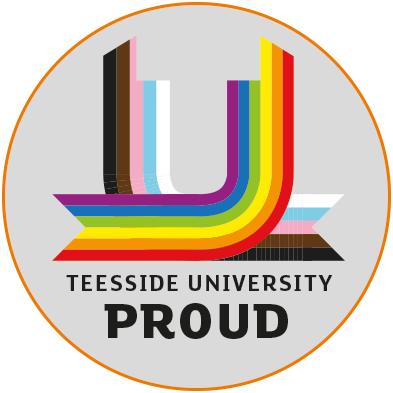 Teesside University Proud
Teesside University Proud
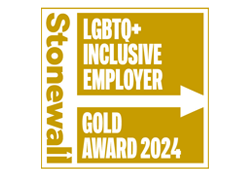 Teesside University ranked 8 out of 246 organisations for the Stonewall Workplace Equality Index, achieving a Gold Award.
Teesside University ranked 8 out of 246 organisations for the Stonewall Workplace Equality Index, achieving a Gold Award.







